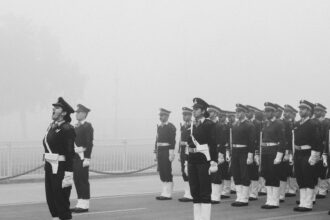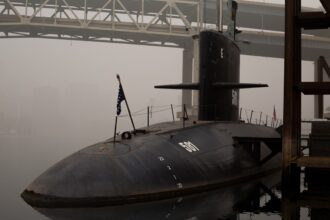The intersection of journalism and intelligence has long been a subject of intrigue and speculation. Journalists, who are traditionally seen as the watchdogs of society, have occasionally found themselves in the employ of intelligence agencies, particularly the Central Intelligence Agency (CIA). This phenomenon raises questions about the duality of their roles: as purveyors of truth and as operatives in the shadows.
The allure of espionage, combined with the skills honed in the field of journalism, creates a unique profile for individuals who navigate both worlds. These journalists-turned-CIA operatives often possess an acute understanding of human behavior, cultural nuances, and the art of storytelling, which can be invaluable in intelligence operations. The motivations behind such transitions can vary widely.
Some journalists may be driven by a desire to serve their country in a different capacity, while others might be drawn to the thrill and complexity of espionage. Regardless of their reasons, these individuals often face a challenging path that requires them to reconcile their journalistic integrity with the clandestine nature of intelligence work. This article delves into the recruitment process, training, roles, ethical considerations, and the broader implications of journalists who have crossed over into the realm of intelligence.
Key Takeaways
- Journalists have been recruited by the CIA to work as operatives, blurring the lines between journalism and intelligence operations.
- The recruitment process for journalists by the CIA involves identifying individuals with access to valuable information and convincing them to work for the agency.
- Journalists turned CIA operatives undergo extensive training and preparation to carry out intelligence gathering and analysis.
- The role of journalists in intelligence gathering and analysis involves using their journalistic skills to collect and analyze information for the CIA.
- Ethical and legal considerations for journalists turned CIA operatives include navigating the conflicts between their journalistic integrity and their obligations to the CIA.
The Recruitment Process for Journalists by the CIA
The recruitment of journalists by the CIA is a nuanced process that often begins with an assessment of an individual’s skills and experiences. The agency seeks out those who have demonstrated exceptional investigative abilities, strong communication skills, and a deep understanding of geopolitical issues. Journalists who have reported from conflict zones or have covered sensitive topics may catch the attention of recruiters due to their firsthand experience in high-stakes environments.
The CIA values these attributes as they align closely with the demands of intelligence work, where gathering information and analyzing it accurately can mean the difference between success and failure. Once identified, potential recruits undergo a rigorous vetting process. This includes background checks, interviews, and assessments designed to evaluate their psychological resilience and adaptability.
The agency must ensure that candidates can handle the pressures associated with covert operations while maintaining discretion and loyalty. For many journalists, this transition can be both exhilarating and daunting. They must weigh the implications of leaving behind their journalistic careers for a role that may require them to operate in secrecy and potentially compromise their ethical standards.
Training and Preparation for Journalists Turned CIA Operatives
Upon acceptance into the CIA, former journalists undergo extensive training tailored to their new roles as operatives. This training encompasses a wide range of skills essential for successful intelligence work.
They are taught how to gather intelligence discreetly, analyze data effectively, and navigate complex political landscapes. Moreover, training often includes instruction on legal frameworks governing intelligence operations, as well as ethical considerations that may arise during missions. Journalists-turned-operatives must grapple with the moral implications of their actions, especially when their work may conflict with the principles they once upheld as reporters.
This duality can create internal conflict as they adapt to a new identity that requires them to prioritize national security over transparency and accountability.
The Role of Journalists in Intelligence Gathering and Analysis
| Role of Journalists | Intelligence Gathering | Analysis |
|---|---|---|
| Investigative Reporting | Interviews, Research | Evaluating Sources, Connecting Dots |
| Information Dissemination | Reporting on Events, Trends | Providing Context, Interpretation |
| Whistleblower Coverage | Receiving Leaked Information | Verifying, Reporting on Revelations |
Journalists bring a unique perspective to intelligence gathering and analysis due to their background in investigative reporting. Their ability to ask probing questions, build rapport with sources, and synthesize complex information makes them valuable assets in the field. In many cases, they can leverage their existing networks to obtain critical insights that may not be accessible through traditional intelligence channels.
This capability allows them to bridge the gap between public perception and classified information, providing a more nuanced understanding of global events. Furthermore, journalists-turned-CIA operatives often excel in analyzing information from diverse sources. Their experience in verifying facts and discerning credible narratives equips them to assess intelligence reports critically.
They can identify patterns and trends that may elude others who lack a journalistic background. This analytical prowess is particularly beneficial in situations where rapid decision-making is essential, such as during crises or when assessing emerging threats.
Ethical and Legal Considerations for Journalists Turned CIA Operatives
The transition from journalism to intelligence work raises significant ethical and legal questions. Journalists are typically bound by codes of ethics that emphasize truthfulness, transparency, and accountability. However, when they become operatives for the CIA, they may find themselves operating under a different set of rules that prioritize national security over public disclosure.
This shift can create cognitive dissonance as they navigate their responsibilities to both their country and the public. Legal considerations also come into play, particularly regarding issues such as confidentiality and source protection. Journalists are trained to safeguard their sources’ identities, but this principle may conflict with the demands of intelligence work, where revealing information can be crucial for operational success.
As a result, former journalists must grapple with the implications of their actions on both personal and professional levels, often leading to difficult choices that challenge their core beliefs.
Case Studies of Journalists Who Became CIA Operatives
Several notable case studies illustrate the complex journey of journalists who transitioned into CIA operatives. One prominent example is Philip Agee, a former journalist who became disillusioned with U.S. foreign policy during his time covering Latin America.
After leaving journalism, Agee became an outspoken critic of the CIA’s covert operations and published a book revealing details about agency activities. His story highlights the potential for journalists to become both advocates for transparency and participants in clandestine operations. Another example is David Ignatius, a journalist for The Washington Post who has written extensively on intelligence matters.
While he has not officially worked for the CIA, his deep connections within the agency have allowed him to provide insights into its operations through his writing. Ignatius’s case underscores how journalists can influence public discourse on intelligence issues while maintaining relationships with operatives.
Challenges Faced by Journalists Turned CIA Operatives
The challenges faced by journalists-turned-CIA operatives are multifaceted and often profound. One significant hurdle is the psychological toll associated with operating in secrecy. Many individuals struggle with feelings of isolation and disconnection from their previous lives as journalists.
The need to maintain confidentiality can strain personal relationships and create barriers between them and their former colleagues in the media. Additionally, these operatives may encounter moral dilemmas that challenge their sense of identity. The very skills that made them successful journalists—such as seeking truth and holding power accountable—can become complicated when they are tasked with gathering intelligence that may not be disclosed to the public.
This internal conflict can lead to feelings of guilt or betrayal as they navigate their dual roles in society.
The Impact of Journalists Turned CIA Operatives on Media and Journalism
The presence of journalists within intelligence agencies has significant implications for both media and journalism as a whole. On one hand, these operatives can provide valuable insights into global events that enhance public understanding of complex issues. Their unique perspectives can inform reporting on national security matters, bridging gaps between classified information and public discourse.
On the other hand, the blending of journalism and intelligence raises concerns about credibility and trust within the media landscape. Audiences may question whether journalists are acting as impartial observers or if they have ulterior motives tied to their connections with intelligence agencies. This skepticism can undermine public confidence in journalism as a whole, complicating efforts to uphold transparency and accountability in reporting.
Controversies Surrounding Journalists Turned CIA Operatives
The relationship between journalists and intelligence agencies is fraught with controversy. Critics argue that journalists who become operatives compromise their integrity by participating in covert activities that may contradict journalistic principles. This criticism is particularly pronounced when operatives engage in actions that could be perceived as misleading or manipulative.
Moreover, there are concerns about the potential for conflicts of interest when journalists maintain ties to intelligence agencies while reporting on related issues. The blurred lines between reporting and espionage can lead to accusations of bias or collusion, further complicating public perceptions of media credibility. These controversies highlight the need for clear ethical guidelines governing interactions between journalists and intelligence agencies.
The Aftermath of Journalists Leaving the CIA and Returning to Journalism
When journalists leave the CIA and attempt to reintegrate into journalism, they often face unique challenges. The transition back into public life can be fraught with difficulties as they navigate perceptions shaped by their previous roles as operatives. Colleagues may view them with suspicion or skepticism, questioning their motivations or integrity based on their past affiliations.
Additionally, former operatives may struggle with how much information they can disclose about their experiences without compromising national security or violating confidentiality agreements. This limitation can hinder their ability to contribute meaningfully to public discourse on intelligence matters, leaving them feeling constrained in their ability to share insights gained during their time in covert operations.
The Complex Relationship Between Journalism and Intelligence Operations
The relationship between journalism and intelligence operations is undeniably complex, characterized by overlapping interests and ethical dilemmas. Journalists turned CIA operatives embody this duality as they navigate the delicate balance between serving national security interests and upholding journalistic integrity. Their unique skill sets contribute significantly to intelligence gathering and analysis but also raise critical questions about transparency, accountability, and trust within both fields.
As society continues to grapple with issues related to national security and freedom of information, understanding this intricate relationship becomes increasingly important. The stories of those who have traversed these two worlds offer valuable insights into the challenges faced by individuals caught between competing loyalties—loyalties to truth-telling as journalists and loyalties to secrecy as operatives in service of national interests. Ultimately, this ongoing dialogue will shape how both journalism and intelligence evolve in an ever-changing global landscape.
In the complex world of journalism and intelligence, the intersection of media professionals and government agencies has often sparked intrigue and controversy. A fascinating exploration of this topic can be found in an article discussing journalists who have worked for the CIA. This piece delves into the ethical implications and historical instances where the lines between reporting and espionage have blurred.




